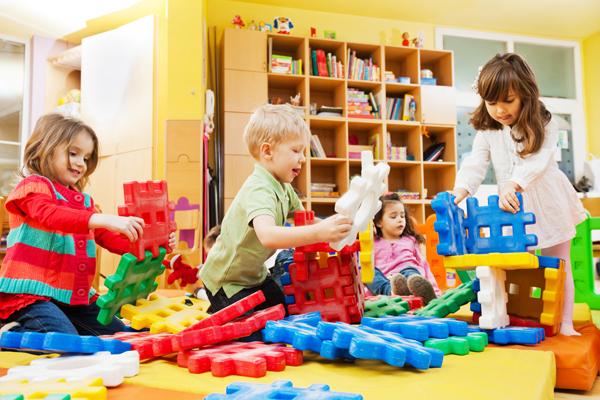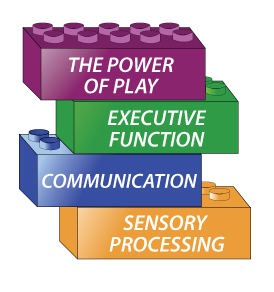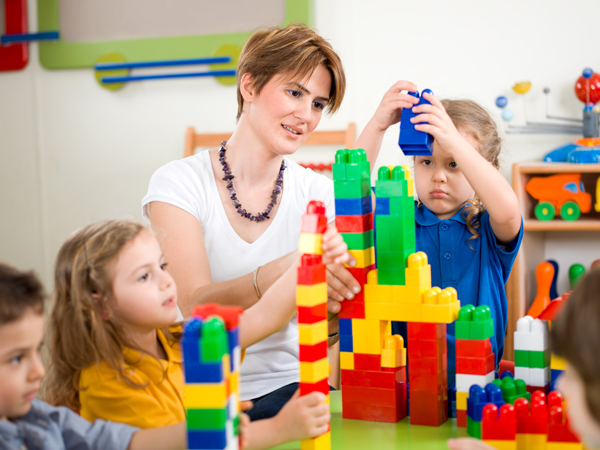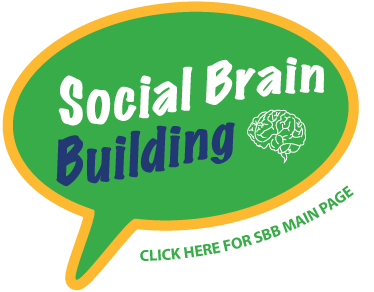Social Brain Building for Preschools
SOCIAL BRAIN BUILDING – Pre-School Based Support for Social Learning

- When does Social Brain Building develop?
- How is pre-school play involved?
- What are the signs and implications of early social learning challenges?
- What can be done at the pre-school level to support the early development of social skills?
Early play development in children, ages 0-3, is often initiated and maintained by adults, or is solitary and “me” driven. As children enter pre-school, they are naturally gravitating towards abstract play with peers and are beginning the journey of social brain building – learning how to be a “we” player.
This journey to develop social engagement capacities for successful play, learning and relationship building in the pre-school years, however, is often not smooth, and may present the first signs that a child may need additional help.
There are many reasons why a child’s capacity for social emotional development can be impeded, resulting in behavioral challenges. Thinking socially relies heavily on foundations in development that regulate how the brain perceives and processes incoming sensory information, uses language to express their own ideas and understand those of others, and delivers a social response that is expected and connected, resulting in a positive social experience for all.
Children who exhibit social emotional challenges or unexpected behaviors, don’t necessarily have a behavior problem, but more likely, a social learning challenge that is rooted in the development of social brain building capacities.
____________________________________________________________
UNDERSTANDING THE BUILDING BLOCKS OF A SOCIAL BRAIN
Sensory Processing: The ability to be able to receive information via the senses, then process, organize, regulate and use it to participate in everyday activities, including social interactions. When challenged with sensory processing, a child can become easily frustrated and overwhelmed within his daily environments of home, school and social settings.

Communication: Social attention. Before a child can use language to share thoughts and ideas, he/she must use their eyes to observe and make sense of non-verbal cues received. Thinking socially entails the development and use of whole body, 2-way verbal and non-verbal communication, including joint attention and joint intention. A child needs to be able to express feelings, desires and intentions using words. Children who struggle with attention, regulation, expressing themselves with words, and using nonverbal and spoken language to share in circles of communication, will struggle with building friendships and being part of a group plan.
Executive Function: The ability to organize perception, thoughts, emotions, actions and resources within the “group thinking” cultures of home and school. >click here for details on Executive Function
Power of Play: Understanding the level of a child’s sensory motor development and what is required of a child’s social brain during free play indoors, outdoors, circle time, table top time, and play dates in different environments, is imperative to understanding the social learning skills they need to successfully navigate each situation. Play provides opportunity to build reciprocal exchanges and relationships while learning to empathize, relate and respond to other peoples thoughts and ideas, and share feelings and emotions.
__________________________________________________________________
Children who struggle to learn as part of a group can benefit from a team of supportive adults trained in how to help them develop social emotional health. This team, including teachers, occupational therapists, speech and language therapists, psychologists and parents, work together to identify why a child is struggling and create a plan of therapy and support that will help a child build a solid foundation for social development.
For many children this support generally occurs in a center-based setting outside of their natural environment. In my 30 years of practice as a Sensory Integration Occupational Therapist, and 13 years directing a team of highly skilled and experienced occupational, speech/language, physical, and marriage and family therapists, I have determined that while center-based support is often a critical first step, a child’s therapy is complimented by team facilitated support of social interactions and relationship development in the child’s natural environment – an environment that is highly complex, ever changing and requires the integration of all social brain building capacities for the child to find joy and be actively engaged.
By joining forces and becoming one community around a child, providing early intervention, the child will move forward to elementary school with a solid foundation and a team of adults aware of his needs and able to provide support as the child continues to grow as a social learner.

HOW CAN CHILD SUCCESS CENTER SUPPORT
SOCIAL BRAIN BUILDING IN YOUR SCHOOL?
On-Site Classroom Observation, Teacher Support and Enrichment:
Pre-school is the time when much of a child’s foundational social brain building occurs, necessary for developing the thinking mind required for elementary school. If a child is struggling with social brain building during this period, it is critical to provide them with the support they need to create and experience successful outcomes.
Child Success Center can bring new perspective to your teachers, helping them become “social developmental specialists”. Our occupational and speech/language therapists will share with your teaching staff the social brain building concepts and techniques that will help them to teach social skills to their students, ultimately enriching their ability to play and learn.
Additionally, our therapists will empower your teachers with the tools and knowledge to communicate comfortably with parents regarding the needs of children for whom social learning doesn’t come naturally.
CSC can provide your pre-school with on-site consultations with occupational and speech/language therapists trained in Social Brain Building, for a complimentary 1-hour visit to help your staff learn how to identify those children that may be struggling with social brain building.
Our therapists will leave your staff with knowledge of red flags to look out for that may indicate a child has challenges in any of the social brain building blocks, including executive function, sensory integration, sensory motor development, speech and language development, and social/emotional development.
Additional Teacher/Family Support Options Available:
- On-site teacher workshops, offering a deeper understanding, and thus more comfort, of the concept of Social Brain Building and its importance to higher level learning.
- On-site weekly consultation services with OT/ST
The value of on site student support

Observing a child in his daily environment of work and play allows the team of teachers and therapists to analyze a child’s ability to play and learn as part of a group, and play and learn in peer-to-peer interactions. Areas of struggle may be evident in joint attention/intention, behavior, social interaction, communication, regulation and play.
If a child is exhibiting challenges in any of the areas of social brain building, and an understanding of the child’s “brain building” level has been attained through professional assessment, then suggestions for therapeutic Social Brain Building options available to the family can be presented.
Options may include:
- Individualized school-based Occupational and Speech Therapy – Supports and facilitates social brain building in a collaborative environment. Emphasis will be placed on side-by-side play, then peer-to-peer, to develop the communication skills necessary to support imaginative play, higher level social problem solving and the ability to communicate thoughts and feelings using rich language.
- Center-based individualized Occupational and Speech Therapy
- Center-based peer-to-peer learning support– Focus is on improving a child’s social pragmatic language processing, necessary to develop social relationships. Two children who have been matched for optimal outcome success, will work with a speech/language pathologist specialized in treating children with pragmatic language and social skills difficulties. Children are paired based on their interests, language abilities and current therapeutic speech and language goals. Each session is driven by a lesson plan consisting of motivating activities designed to improve social communication skills while engaging in relationship building. Sessions will include work on:
- Using “whole body” listening to improve attention and listening
- Initiating and maintaining conversations
- Nonverbal communication during conversation
- Perspective taking
- Improving self-confidence
- Understanding and expressing feelings
- Social flexibility
- Self-regulation
- Friendship Club –Small group of 4-6 children matched for group social skill building needs, utilizing Social Thinking® (Attributed to Michelle Garcia Winner as creator of the Social Thinking Methodology) curriculum and supporting inside out social emotional development. Click here to learn more about the next 4-session Friendship Club – info and dates.
- Parent support – Family support is critical to long term success for a child and is provided by CSC marriage and family counselor.
Social Brain Building at Child Success Center is a blend of theory and practice of multiple highly regarded therapeutic platforms, including FloorTime®, Sensory Integration and Social Thinking® (Attributed to Michelle Garcia Winner as creator of the Social Thinking Methodology), all of which our therapists are certified in and experienced with.
If you’re interested in CSC’s on-site teacher and/or student support for your school, please contact me for more information. I look forward to speaking with you.
Melissa Idelson
Director, Child Success Center
“This program, including its teacher or leader, is not affiliated with, nor has it been reviewed, approved, or endorsed by Michelle Garcia Winner and Think Social Publishing, Inc.”


